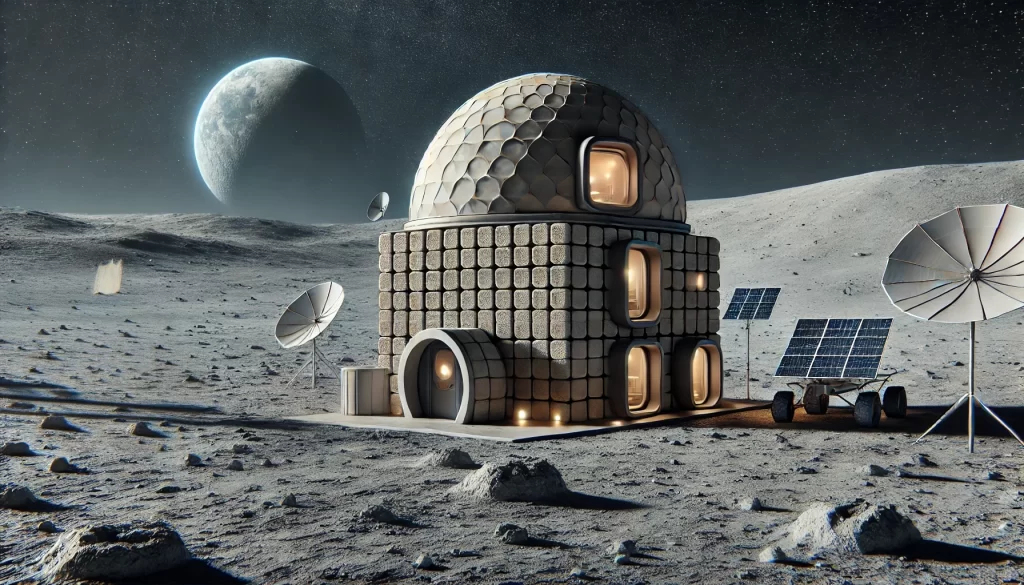Chinese Researchers Develop Bricks from Simulated Lunar Soil for Future Moon Base
Chinese scientists have created bricks using a material that mimics the composition of lunar soil, with the hope that these bricks can one day be used to build a base on the moon. The development is seen as a significant step towards constructing sustainable structures on the lunar surface.
Simulated Lunar Soil Bricks: Stronger and More Durable
Zhou Cheng, a professor at the National Center of Technology Innovation for Digital Construction and the Huazhong University of Science and Technology, introduced the “lunar soil bricks.” These bricks, made from simulated lunar soil through a sintering process, have a similar density to ordinary bricks but are more than three times stronger than standard red or concrete bricks.
The lunar environment presents extreme challenges, with surface temperatures ranging from 180°C during the day to -190°C at night. In addition to these harsh temperature shifts, the moon is bombarded by cosmic radiation and micrometeorites, and it also experiences frequent moonquakes. As such, any building materials used on the moon must be able to withstand these extreme conditions.
“What we care about the most is its mechanical and thermal performance, including heat preservation, insulation, and radiation resistance,” Zhou explained. The moon’s vacuum environment means that cosmic radiation is a significant concern, making these factors crucial for future lunar construction.
Testing the Bricks in Space
To ensure the durability of these lunar bricks, the Chinese research team plans to send them to China’s space station aboard the Tianzhou-8 cargo spacecraft. Over a three-year period, the bricks will be exposed to the harsh conditions of space to test their mechanical, thermal, and radiation-resistant properties. One brick will be returned to Earth each year for analysis.
The team has designed two types of bricks: pillar-shaped for mechanical testing and larger flakes to study thermal and radiation effects. These bricks are created using five different simulated compositions of lunar soil and undergo three sintering processes, yielding valuable data for future lunar construction.
A Step Towards Building a Lunar Base
China’s ambitious space program includes a roadmap for building an international lunar research station. This station is planned for the second phase of China’s national space science development program, set to begin between 2028 and 2035. The research into lunar soil bricks is an important part of this long-term plan, as it aims to develop reliable materials for lunar construction.


